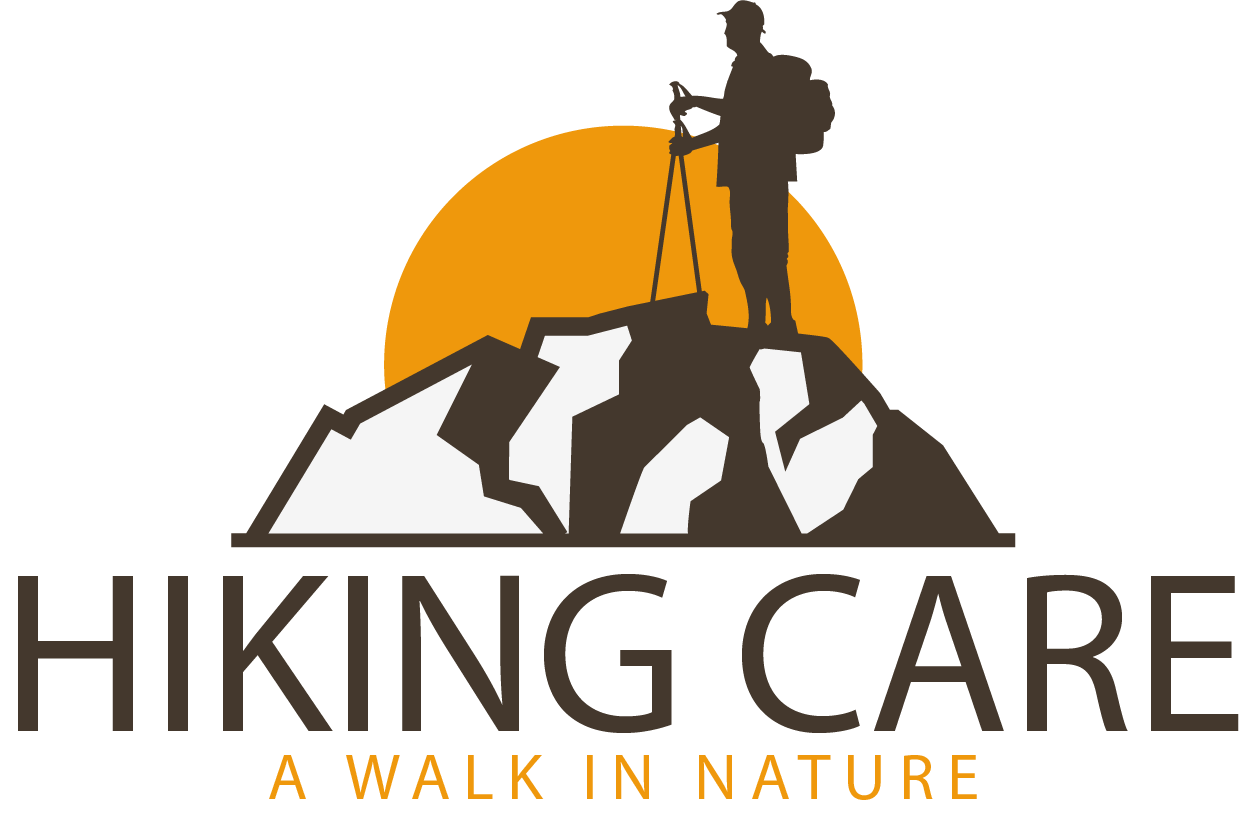Gacaky Sweatshirt for Women Oversized Casual Long Sleeve Button Henley Neck Pullover Tops Fashion Outfits Clothes
10% OffGacaky Sweatshirt for Women Oversized Casual Long Sleeve Button Henley Neck Pullover Tops Fashion Outfits Clothes
10% OffHiking is a popular outdoor activity enjoyed by many. However, there is an ongoing debate about whether hiking should be classified as a recreational activity or a competitive sport. This article will break down the key points on both sides of this debate and look at the evidence to determine if hiking leans more towards recreation or sport.
What is Hiking?
First, let’s clearly define what hiking entails:
- Walking outdoors, often on trails or paths, through natural settings like forests, mountains, valleys, etc.
- Covering long distances on foot, from several miles up to hundreds of miles on overnight backpacking trips.
- Traversing up and down hills, mountains, uneven terrain. Requires balance and athletic endurance.
- Getting exercise and fresh air while exploring the outdoors away from urban environments.
- Does not require competition. Hikes can be taken individually or in groups.
So in summary, hiking involves walking outdoors over long distances on natural trails as exercise and a way to appreciate nature. It does not necessarily have to be competitive.
Criteria That Define a Sport
For an activity to be considered a sport, it typically meets many of the following criteria:
- Physical exertion – Requires physical fitness, endurance, skills
- Competition – Competes according to defined rules and formats
- Skill – Tests capabilities beyond simple exertion through strategy, technique, form
- Entertainment – Provides entertainment value for spectators
- Professionalization – Has paid professional levels and athletes
- Organization – Governed by leagues, associations, and rules
- Spectatorship – Fans actively follow competitions and athletes
| Criteria | Description |
|---|---|
| Physical exertion | Requires physical fitness, endurance, skills |
| Competition | Competes according to defined rules and formats |
| Skill | Tests capabilities beyond simple exertion through strategy, technique, form |
| Entertainment | Provides entertainment value for spectators |
| Professionalization | Has paid professional levels and athletes |
| Organization | Governed by leagues, associations, and rules |
| Spectatorship | Fans actively follow competitions and athletes |
Not all sports meet every single criteria, but the more criteria an activity meets, the more likely it is to be considered a sport.
Arguments For Hiking as a Sport
Here are some reasons why hiking could be considered a sport:
- Physical demands – Hiking requires athletic endurance, strength, balance, and cardiovascular fitness to cover long distances and elevation over many hours. It tests the body’s capabilities.
- Training – Serious hikers condition with strength training, cardio workouts, and hiking progressively longer distances. This dedicated training resembles athlete preparation.
- Competitive events – Some hiking events like speed record attempts on trails or organized rally-style expedition races have competitive placements.
- Associations – Groups like the American Hiking Society promote hiking interests and some best practices.
- Gear advancements – Specialized hiking gear continues to evolve with more technical boots, packs, trekking poles, clothing and navigation tools.
- Professional hikers – Jobs like mountain guides and sponsored athletes rely on hiking skills to earn income.
So in certain contexts, hiking exhibits some of the qualities of recognized sports.
Arguments Against Hiking as a Sport
However, there are also several factors indicating hiking may not fully constitute a sport:
- Lack of consistent rules – Unlike baseball or soccer, there are no standardized rules that all hikers must follow.
- No categorical objectives – Hiking has no set game objective like scoring points or winning a trophy. The experience itself is the reward.
- Not a competition – Most hikers hike for personal fitness and enjoyment, not to compete against other hikers.
- No leagues – There are no persistent professional leagues, associations, or regulated competitions at large.
- No spectators – Hiking is usually an individual experience, not a spectated event meant for entertainment.
- Self-competition – Rather than compete, each hike is a personal challenge to complete the distance based on one’s own fitness.
So by traditional definitions of organized sports, hiking may fall slightly short in some areas like consistent rules and mainstream competitions.
Hiking Shares Some Qualities With Both Recreation and Sport
In reality, hiking seems to straddle the line between recreation and sport, exhibiting qualities of each depending on context:
Similarities to recreation:
- Personal enjoyment, relaxation, and appreciation of nature
- No need for competition with others
- Open to all ages and skill levels
- Usually self-motivating and self-rewarding
Similarities to sports:
- Requires athletic fitness, endurance, and skill
- Advancing gear and apparel for performance
- Training to push physical limits
- Organized competitive events do exist
- Enables professional guiding careers
| Recreational Qualities | Sport Qualities |
|---|---|
| Personal enjoyment and relaxation | Requires athletic fitness and endurance |
| No competition necessary | Training to push physical limits |
| Open to all skill levels | Specialized performance gear available |
| Self-motivating and rewarding | Organized competitive events exist |
| Appreciation of nature | Enables professional guiding careers |
So arguments could be made either way depending on if you focus on hiking’s recreational qualities or the ways it can be done competitively. Hiking sits in a gray area between the two categories.
Examining Both Sides of the Debate
To better evaluate if hiking is more recreation or sport, let’s examine some key questions:
Is hiking primarily competitive?
For most people, hiking is non-competitive. It is done individually or in groups for personal fitness and enjoyment without directly racing others. However, speed record attempts on trails demonstrate hiking can be made competitive. But this remains a niche element of the overall hiking world.
Does hiking require athletic skill and training?
Yes, hiking successfully over long distances, elevation, and technical terrain requires athletic endurance, strength, balance, navigation skills and physical training. But the required skill levels vary greatly depending on the difficulty of the hike.
Is advanced hiking equipment required?
Specialized hiking gear can aid performance but is not required for most recreational hiking. Mainstream hikers use modest equipment. Advanced tools like mountaineering gear are niche.
Is hiking performed professionally or for income?
A small subset of hikers work professionally as guides, gear specialists or sponsored athletes. But most hikers hike informally for personal satisfaction and exercise.
Is hiking recognized by major sports leagues and organizations?
Some associations like the American Hiking Society promote hiking interests, ethics and access but there is no overarching league that integrates competitions and professional hikers from the top down like major sports.
Does hiking entertain spectators?
Outside of rare competitions, hiking is rarely spectated specifically for entertainment value. It is a personal experience rather than a performance.
Considering these perspectives, while hiking does exhibit select competitive and athletic elements depending on context, the case is stronger for characterizing it primarily as a popular recreational activity and outdoor experience pursued informally. But reasonable arguments exist on both sides of the debate based on how people hike.
Hiking’s Classification Can Depend on Context
Given hiking’s blend of both recreational and competitive qualities, it may be most accurate to say that hiking occupies a fluid spot on the spectrum between recreation and sport based on how it is practiced in each specific context:
- For most, hiking leans more recreational as a personal outdoor experience.
- In organized competitions like speed record attempts, hiking leans more sport.
- When done as a full-time career, hiking is more professional sport.
- On technical trails requiring skill and gear, it has more sport qualities.
- When hiking becomes an obsessive lifestyle, it resembles the dedication of competitive athletics.
So hiking itself cannot be classified definitively as sport or recreation in all cases. Depending on the context and motivations involved, hiking can exhibit qualities of both categories.
Conclusion
In conclusion, the debate over hiking’s classification as recreation or sport has reasonable arguments on both sides stemming from its blend of athletic and non-competitive qualities. In most mainstream contexts, hiking leans more towards recreation as a personally rewarding outdoor experience rather than a regulated competitive sport. But certain niches like competitions and professional guiding still lend it some sport qualities as well. Given hiking’s fluid range across the spectrum, perhaps the best classification is as an activity firmly situated between recreation and sport that exhibits traits of each depending on how and why people hike. Its diversity resists easy categorization on either extreme.
Frequently Asked Questions
Is hiking considered cardio or strength training?
Hiking involves both cardio endurance from aerobic exertion over long durations, along with strength training from walking uphill, scrambling over obstacles, and carrying gear. It provides a full-body workout.
How fast is hiking considered a sport?
There is no set speed threshold. But when hikers race over trails specifically to place in organized competitions, they are engaging in the competitive sport aspect rather than just recreation.
Is hiking good for losing weight?
Yes, hiking can be excellent for losing weight due to the prolonged aerobic activity burning substantial calories over many miles. It also builds metabolism-boosting lean muscle.
What muscles does hiking work?
Hiking works muscles throughout the body including legs, glutes, core, back, shoulders, and arms, making it a full body workout. The legs power each step forward. The core stabilizes the body. The upper body manages trekking poles and packs.
Is hiking better exercise than running?
There is no definitive “better” – they offer different benefits. Running burns more calories per hour at faster paces. But hiking allows going further and longer at slower paces with lower injury risk. Both build fitness effectively.
Should beginner hikers train before attempting long trails?
Yes, it’s highly advisable for beginner hikers to progressively train by hiking longer distances and elevation gains over time before attempting long backpacking trips. This allows the body to adapt and prevents overuse injuries.
What are the most important muscles used in hiking?
The leg muscles like quads, hamstrings, glutes, and calves are most important for powering you up and down the trail over many miles. But core muscles provide essential stability, while upper body muscles manage packs and poles.
Should someone train before hiking a 14er?
Climbing 14,000 ft peaks is extremely strenuous, even for experienced hikers. It’s wise to train for several months at increasing distances and elevations on smaller hikes to adapt your cardiovascular system and muscles to the demands.
In summary, hiking offers an outstanding blend of recreational and athletic benefits. While largely a recreational activity, it still provides an impressive physical workout and opportunities for competition. Hiking truly is the perfect full body exercise and escape into nature available to all.

























